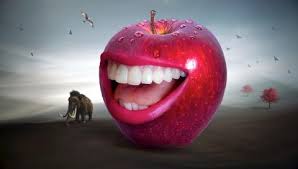 |
| Image credit: LightForceNetwork |
When we talk about cavities, it is natural for people to think they are safe because they do not prefer sugary food or desserts. People might want to believe that refraining from a sugary diet is enough to stave off the germs that cause caries. However, is it true?
Dr. Jennifer Eisenhuth DDS Orthodontist wants you to know that sugary food is not the only culprit. Cavities can develop due to numerous other reasons. Several every day habits can increase your chances of developing caries. Most importantly, not only children but even adults are always at risk of developing cavities.
Since a cavity might not cause immediate pain or sensitivity in your teeth, you might not even realize it’s there until it is too late. So, the ADA recommends at least one visit to the dentist’s offices in six months for preventive care and regular checkups.
Here are some surprising and some common reasons you might be at a high risk of cavities –
i. Fluoride deficiency
Fluoride is a necessary mineral that keeps our teeth and bones healthy. Too much or too little of fluoride can usurp the health of our teeth. The most common reason children and adults suffer from rotting teeth is fluoride deficiency. Enough fluoride protects your teeth from sugar, acid, and bacteria.
The only way to know if you have adequate amounts of the mineral in your teeth is by getting a dental checkup. Deficiency can reduce the hardness of your teeth, make them susceptible to the acids and sugar in the food, and create a breeding ground for teeth bacteria.
ii. Teeth grinding
Some have the habit of grinding their teeth when they are awake and bored, and some grind their teeth while asleep. Unless you are seeking help from a behavior therapist or sleep therapist, teeth grinding can take a massive toll on your dental health. Constantly rubbing teeth against teeth can wear the enamels out and expose the inner matter to bacterial growth. It increases the chances of a cavity by providing ample space for food to hide.
iii. Acidic food, sugary meals, and drinks
While we know that sugar is a proven cause of cavities, we don’t want to accept that our La Croix or Mountain Dew can give us caries. Not rinsing your mouth immediately after flavored drinks and sugary food can cause the enamel to wear down. That exposes teeth to bacteria that cause cavities in adults and children. In short, there is no age for developing cavities. Lifestyle and diet are taking a considerable toll on dental health, irrespective of age.
iv. Dehydration and dry mouth
It is common to feel dehydrated during the summer months. Without enough fluids in the body, our mouths tend to dry up as well. Saliva maintains the moisture in our mouth and creates a protective layer on our teeth. Excessive mouth dryness can expose teeth to cavity-causing food, acidity, and bacteria.
People, who suffer from chronic dryness of the mouth due to the side effects of some medication or due to physiological stress often have higher incidences of cavities than those who have normal saliva secretion at all times.
v. Smoking or chewing tobacco
Tobacco in any form can challenge dental health. Whether you are smoking or chewing tobacco, it can increase the susceptibility of your teeth to cavities. Nicotine dries mouths and removes the protective saliva layer from the teeth. It creates the perfect entry point for cavity-causing microbes. Yellowing, and discoloration of teeth are most common among smokers and tobacco chewers.
vi. Aging
Our bodies change as we grow old. That is no secret, but even our teeth change as we age. Seniors often suffer from deficiency diseases including fluoride, and calcium deficiencies. They often complain of dry mouths. Their gums recede and leave the roots of their teeth exposed to bacterial plaque. Years of not scaling or cleaning out tartar regularly cause gum bleeds. Certain vitamin deficiencies contribute to these complaints. Cavities find the perfect breeding ground amidst multiple deficiency diseases, natural deformations and lack of immunity in the teeth of the senior population.
vii. Not taking care of fillings
Fillings should seal and stop old cavities. However, not going in for regular checkups and not cleaning the old fillings properly can put you at risk of new cavities. Sometimes, large fillings create enough space for bits of food to hide. It is close to impossible to remove these bits by brushing only. They demand professional cleaning by your nearest dentist. In many cases, your dentist in MN will recommend crowns instead of large fillings if you are at the risk of new cavities.
viii. Overcrowding
Sometimes, cavities find natural breeding ground among overcrowded teeth that don’t allow the bristles of a brush or floss to reach the crevices properly. Overcrowding is a serious problem among teenagers and adults alike. Plaque and tartar formation is inevitable without proper corrective treatment and professional dental cleaning sessions. As a person grows old, the tendency of cavity formation keeps increasing without the intervention of an orthodontist.
Other factors like genetics, overall health and immunity have vital roles to play in one’s susceptibility towards caries. Studies show that genetic factors might be responsible for higher bacterial presence in the mouth. Coupling other factors like tobacco smoking, alcohol, and unhealthy diets can increase one’s vulnerability to cavities in adulthood.
Even eating disorders like anorexia can cause deficiencies that lead to tooth decay. However, it is more common in bulimic people, who have the habit of purging regularly. The acids from the stomach content wear away the enamel and encourage the growth of bacteria in the mouth.
To find out all about your dental health, book a dentist’s appointment with your MN dental health clinic ASAP. Preventing plaque and tartar growth can give you healthy teeth for life.






